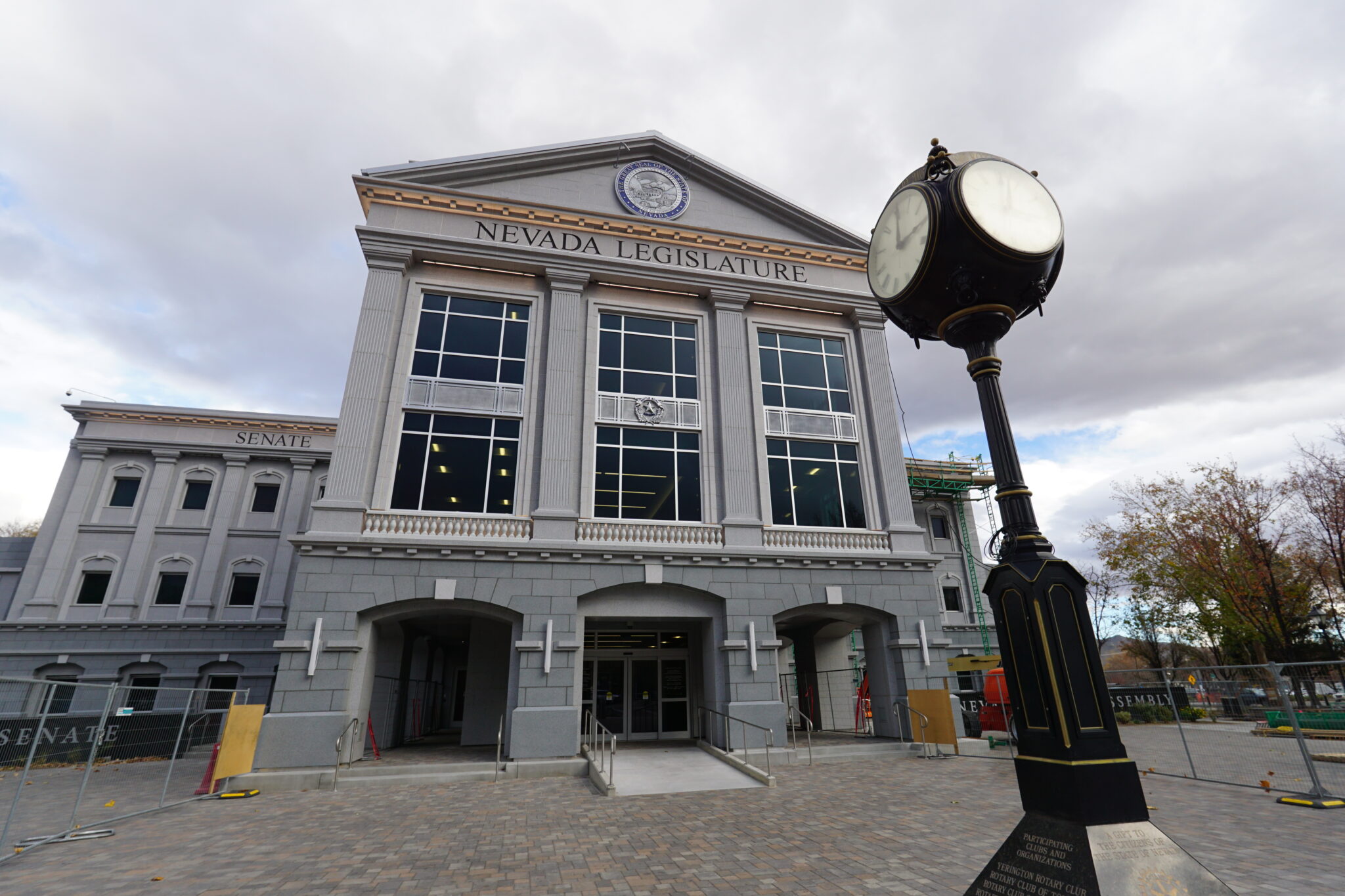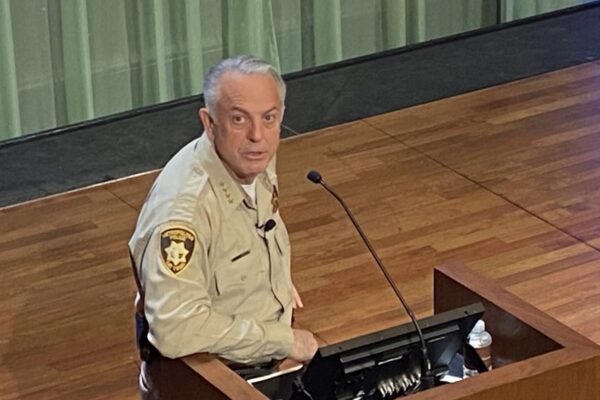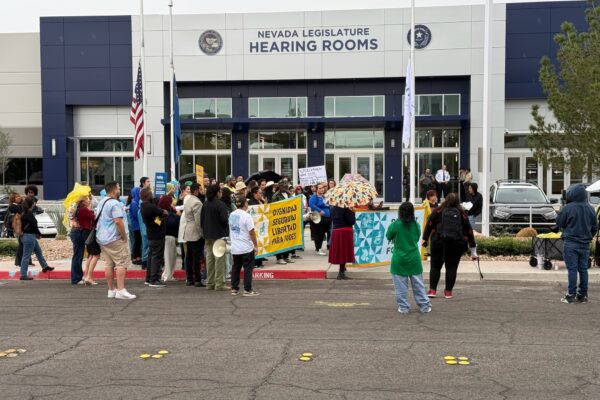By Jeniffer Solis, Nevada Current
This piece was originally published in the Nevada Current.
(Photo: Jeniffer Solis/Nevada Current)
The Nevada Resort Association on Thursday defended the provisions of Gov. Joe Lombardo’s crime bill that would allow courts to ban certain criminal offenders from the resort corridor for up to a year.
Provisions of Assembly Bill 4 mirror the functions of the now-dissolved Resort Corridor Court, which was created to deal with low-level crimes on the Strip, often by barring offenders from entering the tourist district for months at a time.
The short-lived specialty court, established by the Clark County Justice Court in 2023, was disbanded the next year after questions about its legality arose.
Matt Griffin, a lobbyist for the Nevada Resort Association, told lawmakers on the special session’s Assembly Committee on Public Safety and Security that those questions were resolved in April after a Clark County District Court Judge affirmed the county had the authority to enact criminal ordinances on the resort corridor. The court ruled it was not a violation of the First Amendment to bar individuals from the corridor once they were charged or convicted of a crime in the corridor.
Critics of the court argued ordinances on the resort corridor violated free speech laws by targeting street performers and vendors with low-level offences.
While the bill includes language giving the Justice Court the authority to re-establish a Resort Corridor Court, the bill itself does not revive the controversial court, said Griffin.
“I think there’s been some misunderstanding about what’s being proposed today,” Griffin told lawmakers. “We are not seeking for this body to enact a corridor court. That is a decision for the Justice Court to make and the Justice Court to make alone.”
The bill proposes establishing order-out corridors for individuals convicted of crimes within these areas, with discretionary penalties for first offenses and mandatory one-year bans for subsequent offenses made within two years.
Virginia Valentine, the president and CEO of the Nevada Resort Association, told lawmakers repeat offenders were undeterred by current penalties.
“Recidivism continues to be a significant issue in our tourism areas,” Valentine said.
Provisions pushed by the Nevada Resort Association would also elevate certain crimes against hospitality workers to higher felony categories by categorizing them as a protected class, similar to utility workers and school teachers.
The Nevada Resort Association also proposed an amendment to the bill that would require the court to submit an annual report that includes the number of people barred from the corridor, their crime, and the rate of successful completion of their sentence. No public data was available on the previous court’s operation.
Several gaming companies spoke in support of the crime bill, including Red Rock Resorts, Caesars Entertainment, Boyd Gaming Corporation, MGM Resorts International, and Wynn Resorts.
Provision surrounding the resort corridor attracted a slew of testimony in opposition. Athar Haseebullah, the executive director of the ACLU of Nevada, argued the bill would privatize part of the judicial system. While it does not directly reestablish a corridor court, Haseebullah said it opens the door to build one again.
—“This is an optical, performative bill that basically sells out the interests of our community for what the resorts want. When the corridor court was created it targeted people, largely who are unhoused and street performers. It targeted very few, if any, folks who engaged in violence, because it was a Justice Court initiative, if there were violent offenses that would have been bound over to District Court."
Athar Haseebullah,
Executive Director, ACLU of Nevada
“This is an optical, performative bill that basically sells out the interests of our community for what the resorts want. When the corridor court was created it targeted people, largely who are unhoused and street performers. It targeted very few, if any, folks who engaged in violence, because it was a Justice Court initiative, if there were violent offenses that would have been bound over to District Court,” Haseebullah said.
“It’s a banishment court so they could continue to try to privatize Las Vegas Boulevard, despite the fact that locals are the ones who pay the bill for that,” he said.
The gaming industry’s asks are just one component of AB4, a sweeping bill that covers several areas of criminal law. The bill would also:
- Expand the definition of stalking to include dating relationships and cyberstalking via social media;
- Add kidnapping and attempted domestic violence to the list of felony domestic violence offenses;
- mandate firearm surrender compliance within 2-5 business days post-conviction;
- increase penalties for DUI-related offenses and establish an alternative correctional program;
- Child pornography possession would be charged per image;
- eliminate automatic sealing of records for offenses against children or the elderly;
- prioritize restitution to victims; and
- addresses violence against school employees.
The Assembly committee took no action on the bill Thursday.




